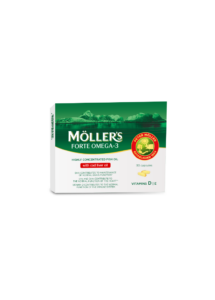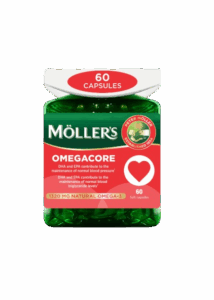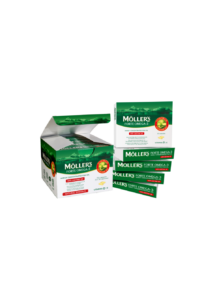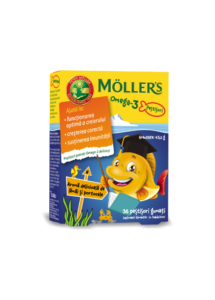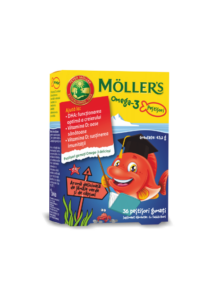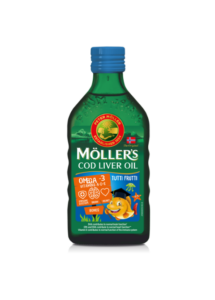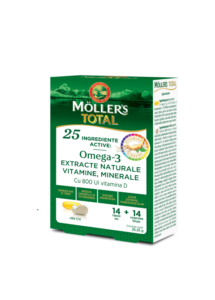Ako se pitate: „Koje vitamine trebam uzimati?“, odgovor najbolje poznaje upravo vaše tijelo. Nedostatak vitamina može se manifestirati kroz fizičke simptome koje je lako prepoznati ako znate na što trebate obratiti pozornost.
Home » Nedostaju li vam vitamini? Vaše tijelo dat će vam pokazati

Važnost vitamina za zdravlje dobro nam je poznata. Nedostatak vitamina može imati raznolike posljedice za tijelo. Ako znate prepoznati simptome, možda ćete i sami uočiti nedostatak pojedinog vitamina. Donosimo vam praktičan popis simptoma koji ukazuju na manjak određenih vitamina.
Vitamin A
Pomaže održavanju normalnog vida, kože, sluznica i imunosnog sustava.
Simptomi nedostatka:
- Suhe oči
- Slabija prilagodba na tamu (noćno sljepilo)
- Smanjena otpornost na infekcije
Vitamin B1 (tiamin)
Pomaže održavanju normalne funkcije srca, živčanog sustava, stvaranju energije i mentalnim funkcijama.
Simptomi nedostatka:
- Poteškoće s koncentracijom
- Utrnulost prstiju ruku i nogu
- Zbunjenost
- Problemi s ravnotežom
Vitamin B2 (riboflavin)
Pomaže održavanju zdrave kože, vida, metabolizma, živčanog sustava, sluznica i stvaranju crvenih krvnih stanica.
Simptomi nedostatka:
- Rane i pukotine u kutovima usana
- Nadražene oči
- Suha koža
- Lomljivi nokti
Vitamin B3 (nikotinamid/niacin)
Pomaže održavanju zdrave kože, sluznica, metabolizma, mentalnih funkcija i živčanog sustava.
Simptomi nedostatka:
- Osip na koži
- Povraćanje
- Proljev
Vitamin B6 (piridoksin)
Pomaže u održavanju normalne funkcije imunosnog sustava, hormonalne ravnoteže, metabolizma, živčanog sustava, preraspodjeli bjelančevina, mentalnim funkcijama i stvaranju crvenih krvnih stanica.
Simptomi nedostatka:
- Depresija
- Grčevi
- Anemija
Vitamin B8 (biotin)
Pomaže u održavanju zdrave kože, kose, metabolizma, sluznica, živčanog sustava i mentalnih funkcija.
Simptomi nedostatka:
- Mučnina
- Depresija
- Bol u mišićima
- Promjene na koži
Vitamin B9 (folna kiselina)
Pomaže u normalnoj diobi stanica, stvaranju krvi, mentalnim funkcijama i održavanju imunosnog sustava.
Simptomi nedostatka:
- Mučnina
- Proljev
- Razdražljivost
- Zaboravljivost
- Glavobolja
- Anemija
Vitamin B12
Pomaže u održavanju normalnog živčanog sustava, metabolizma, mentalnih funkcija, imunosnog sustava, stvaranju crvenih krvnih stanica i diobi stanica.
Simptomi nedostatka:
- Anemija
- Proljev
- Zaboravljivost
- Bolan jezik
Vitamin C
Važan za normalno stvaranje kolagena za zdravlje kože, kostiju i hrskavice. Također pomaže u održavanju imunosnog sustava, mentalnih funkcija te apsorpciji željeza. Štiti stanice od oštećenja slobodnim radikalima.
Simptomi nedostatka:
- Krvarenje desni i kože
- Sporo zacjeljivanje rana
- Razdražljivost
Vitamin D
Pomaže u pravilnoj apsorpciji i preraspodjeli kalcija i fosfora. Održava zdravlje mišića, kostiju, zubi, imunosnog sustava i diobu stanica.
Simptomi nedostatka:
- Oslabljen imunitet
- Bol u zglobovima i kostima
- Krhke kosti sklone lomovima
Vitamin E
Pomaže u zaštiti stanica od oksidativnog stresa.
Simptomi nedostatka:
- Problemi s vidom
- Nestabilnost pri hodanju
Vitamin K
Važan za zdrave kosti i normalno zgrušavanje krvi.
Simptomi nedostatka:
- Krvarenje iz nosa
- Sporo zgrušavanje krvi
Ako sumnjate na nedostatak vitamina, obratite se liječniku koji će provjeriti razinu vitamina u vašoj krvi. Ako vam se dijagnosticira nedostatak, liječenje obično uključuje uzimanje većih doza vitamina dok se razine u tijelu ne normaliziraju. Nakon toga nastavlja se uzimanje manjeg, održavajućeg doziranja. Liječnik vam također može dati savjete o prehrani kako biste u budućnosti osigurali dovoljan unos vitamina.
Izvor: Felleskatalogen, Norwegian Health Informatics, sml.snl.no
What is good health?
Do you have a good lifestyle?
Lifestyle simply means the way in which you live. Health and lifestyle go hand in hand. You might feel you have a good lifestyle if you are physically active, eat healthily and generally experience a sense of wellbeing. Conversely, if you want good health you should also have a good lifestyle.
Physical activity is the major contributor to a good lifestyle, but diet, drugs, stress, sleep and social conditions are also play an important role. Being able to use the body properly to avoid injury also affects lifestyle. Physical activity can also prevent depression and help you to recover more quickly from mental illness, both of which obviously affect your lifestyle.
Diet can be a difficult topic for many. Perhaps you eat too much or too little or maybe you find it hard to know what foods to combine to have a balanced diet. It’s also important to eat food that contains important vitamins, minerals and dietary fibre, omega-3 and antioxidants. On top of all this, you also need to get enough energy, protein and the correct fatty acids. The requirement for these nutrients changes throughout your life. When you are older you also have different requirements than children and younger adults. Women also have different requirements than men. Pregnant and breastfeeding mothers also have special requirements.
When you get older, you lose muscle mass and your body requires less energy and therefore less food. You may lead a less active life than you did before, which is why you require less food. However, your need for minerals, vitamins and other nutrients remains the same. Of course, there are plenty of healthy and active older people, but when you reach 70 to 80 years of age, it’s easier to become ill, especially during flu season.
Some steps you can take to improve your lifestyle and health are to:
- eat a healthy and varied diet
- stay active
- watch your weight
- avoid too much alcohol and don’t smoke
- get enough sleep
- think positive
- practise good hygiene
What is good quality of life?
The World Health Organisation (WHO) defines quality of life as a state where the individual can realise their potential, cope with normal stressful situations, work in a rewarding and positive way, and be able to contribute to others and society.
Quality of life is a wide and somewhat diffuse concept that includes joy in, and a desire for, life. These are values that are rather felt than measured, which in turn are based on personal environment and choices. Quality of life doesn’t necessarily depend on being healthy or sick. It’s the moments between worries, sorrows, problems and ailments that matter. For example, if you have a chronic illness, a feeling of mastery can be important when talking about quality of life.
To sum up, quality of life is a combination of health, lifestyle, networks and social support. It’s about experiencing joy, meaning in life, satisfaction, security and a sense of belonging, as well as being able to use your strengths. It’s also about feeling interest in life, coping with everyday situations and a being committed to something or someone. If you have good quality of life, you will be able to cope better with the inevitable stressful situations in life.
Naši proizvodi
MÖLLER'S FORTE OMEGA 30 kapsule
MÖLLER'S OMEGACORE
MÖLLER'S FORTE OMEGA 150 kapsule
MÖLLER'S OMEGA 3 RIBICE s okusom NARANČE I LIMUNA
MÖLLER'S OMEGA 3 RIBICE s okusom JAGODE
MÖLLER'S OMEGA 3 RIBICE s okusom COLE
MÖLLER'S OMEGA 3 ULJE JETRE BAKALARA s okusom TUTTI FRUTTI
MÖLLER'S OMEGA 3 ULJE JETRE BAKALARA s okusom LIMUNA
MÖLLER'S TOTAL
Saznajte više
Zašto Möller’s? Pouzdan i kvalitetan izvor omega-3 iz Norveške
imunitet omega-3
Dobro zdravlje, stil života i kvaliteta života – što to zapravo znači?
Ulje jetre bakalara ZDRAVO STARENJE
Ulje jetre bakalara i vaš imunološki sustav
imunološki sustav Ulje jetre bakalara
Pronađite inspiraciju na našem Instagramu
This error message is only visible to WordPress admins
Error: Access Token is not valid or has expired. Feed will not update.
